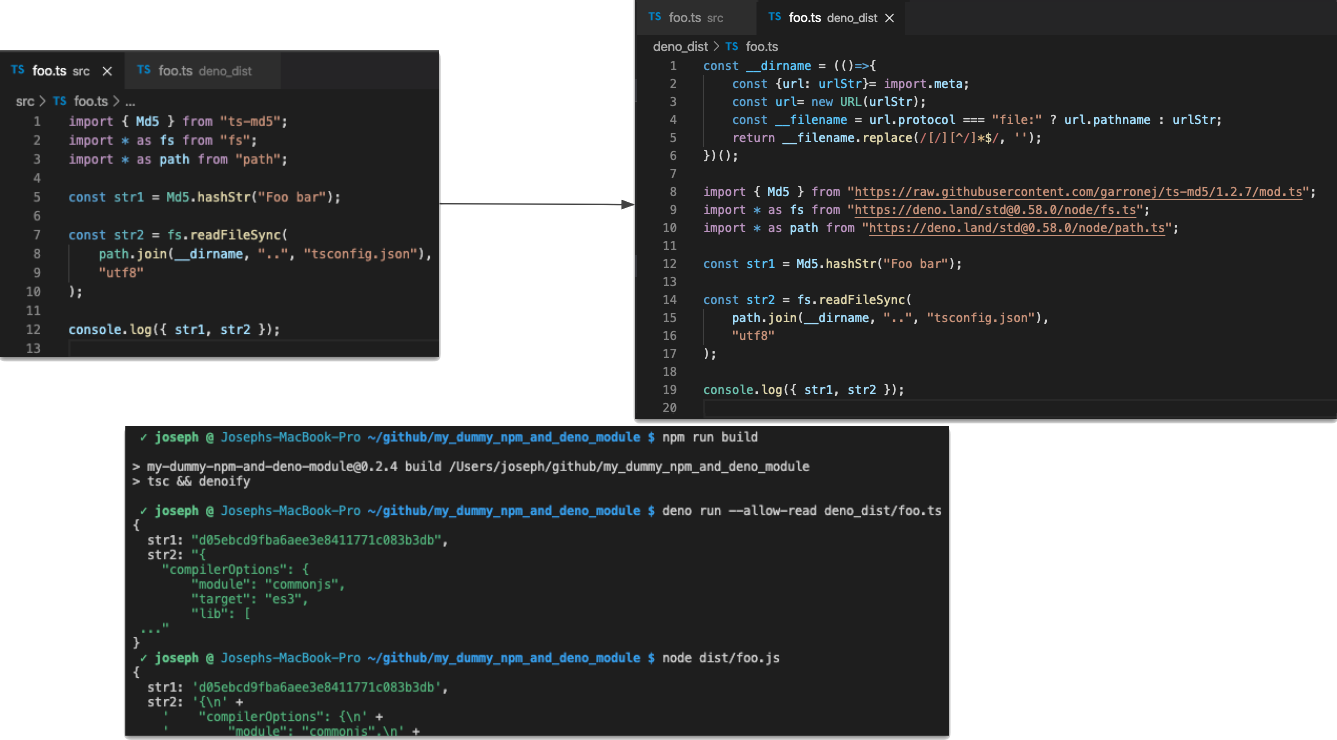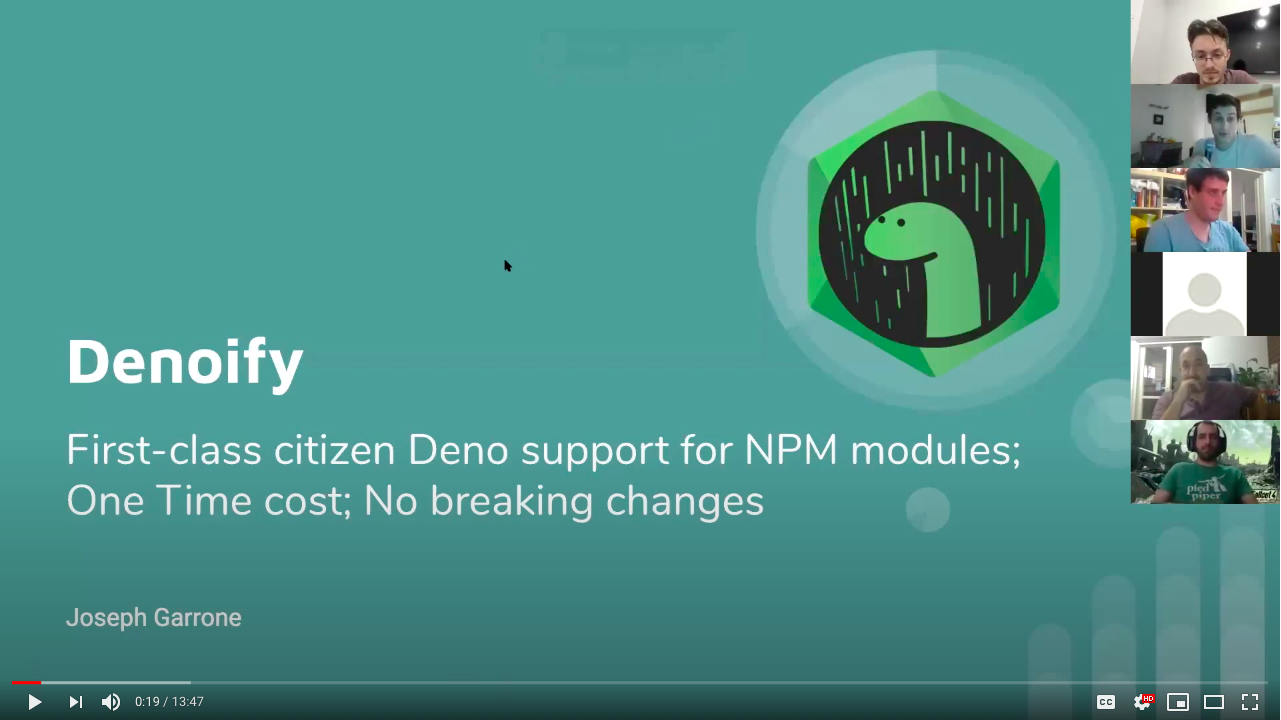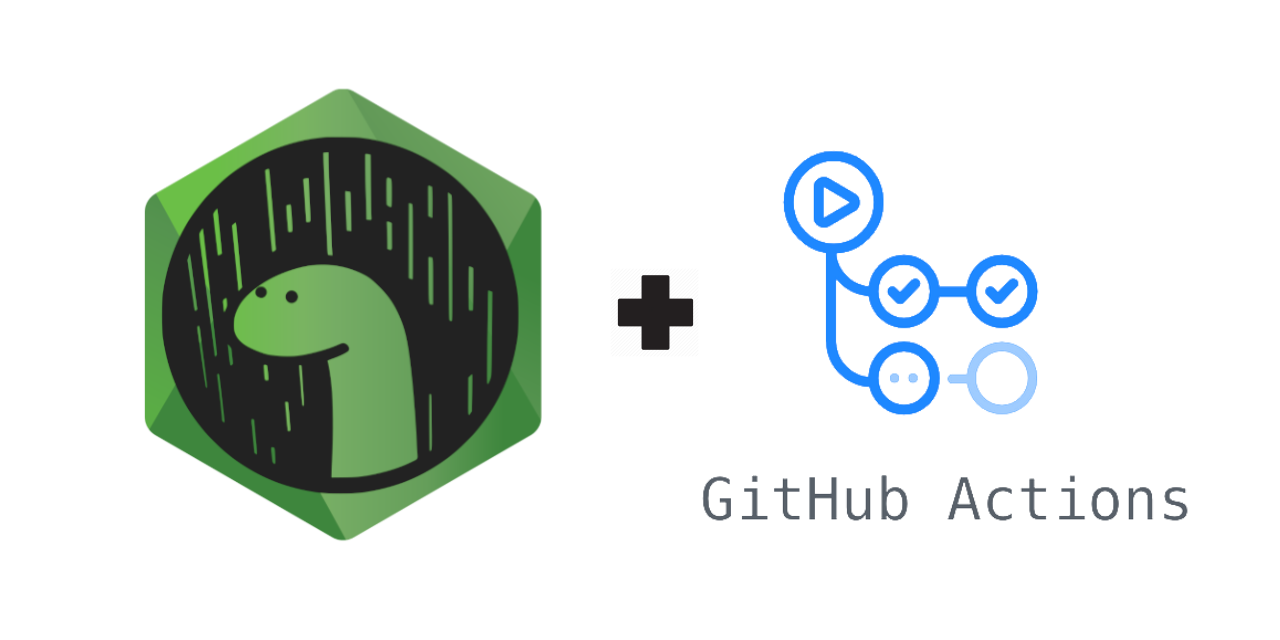🦕 Support Deno and release on NPM with a single codebase.🦕
NOTICE: The tool will be presented at the next Deno Israel online meetup.
A build tool that takes as input a TypeScript codebase that was meant to target node and/or the web and spits out a modified version of the source files ready to be deployed as a Deno module.
If you are just looking for a quick way to load NPM modules in your Deno project
you can check out CommonJS module Loading,
unlike Denoify, it won't give you types definitions, it will involve node_modules/
and require --allow-read but it will also be easier to get working.
This tool is mainly for NPM module maintainer, to enable them to bring first-class citizen Deno support to their modules and doing so without introducing breaking changes.
- Although it is quite easy to port a module to Deno no one wants to maintain two codebase.
- Wouldn't it be great to have a tool able to bring Deno support to NPM modules?
Modules that have been made cross-runtime using Denoify:
Coming up next is a detailed guide on how to set up denoify with your project and how to publish on deno.land/x but before anything here are the current limitations you need to be aware of.
- If your module is vanilla JS it needs to be ported to TypeScript first. (1)
- Not all Node's builtin are supported yet. (2)
- You will need to fork and denoify(3) manually each of your module's (not dev) dependencies.
- For the dependencies that can't easily be denoified you will need to write a partial Deno port of the bits your module needs.
require()is not yet supported.- You can't (yet)
fs.readFilefiles that are part of the module ( files inside ares/directory for example ). (4)
(1) Don't be afraid, renaming your source with .ts and dropping some any here
and there will do the trick.
You will be able to pull it off even if you aren't familiar with typescript. Ref
(2) You can consult here the current state of the Node's builtin support.
(3) Glossary: To 'denoify' a module is the process of using this tool to generate a deno distribution of a module and to publish it on GitHub. How to do that is documented in details.
(4) In Deno the files that forms your module won’t be pre-fetched and
placed in node_module like in node so you won’t be able to access files that are not
on the disk.
Check out this repo to see in practice how to set up Denoify in your project.
denoify_ci is a template repo that automates the boring and tedious tasks of:
- Filling up the
package.json - Setting up TypeScript and Denoify.
- Writing a README.md with decent presentation and instructions on how to install/import your module in different environments.
- Testing with multiple
NodeandDenoversions before publishing. - Publishing on NPM and deno.land/x ( via GitHub releases ).
- 🔥 Support CDN (Pika, jspm, UNPKG ...) urls as Deno ports and feature side loading of type definitions.
-
index.tsshould be renamemod.tsto respect Deno's naming recommendations. - Add cli option for specifying the output directory.



